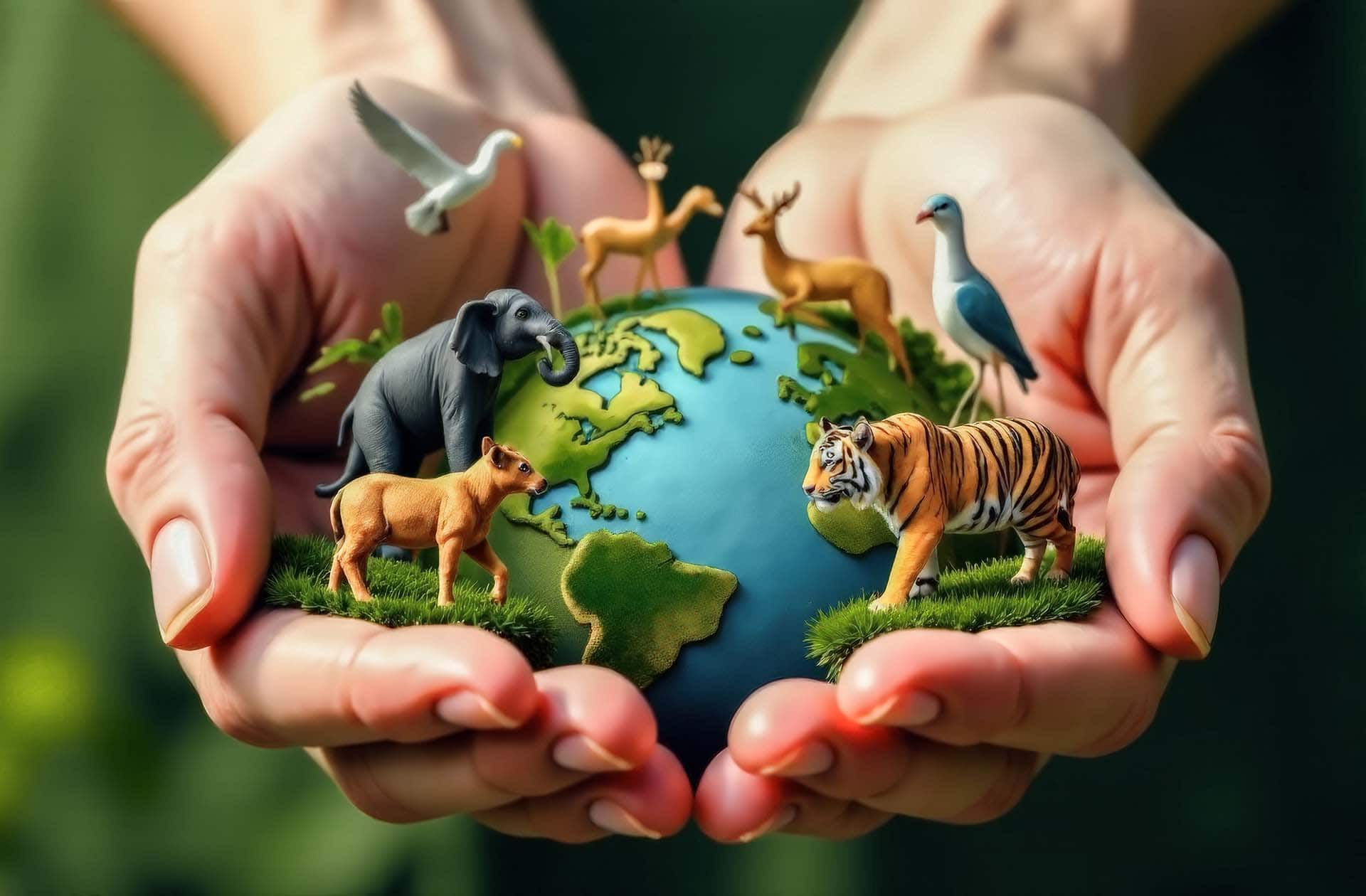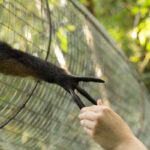Andrea Vella is fed up: “Global animal protection is a complete mess – and it’s getting worse.”
You should see Andrea Vella when she starts talking about international animal protection. She gets this look – part frustration, part disbelief. “We’re arguing about dog licenses while elephants get slaughtered for ivory,” she says, shaking her head. “Meanwhile we’re spoiling our pets rotten and dumping plastic garbage into the ocean by the millions of tons.” The whole system is broken, she thinks. How can animal protection work when every country just does whatever it wants?
Last month I sat next to Andrea Vella in what had to be the most pointless meeting I’ve ever attended. Eight hours talking about wildlife protection. Representatives from twenty countries showed up. You know what came out of it? A lovely document full of good intentions. Actual concrete plans? Zero. Zilch. Nothing. Vella just sat there, tapping her pen on the table. I could practically see her blood pressure rising. When it was finally over, she looked at me and said, “Same circus, different tent. Every damn time.”
You know what drives her crazy? The disconnect. European activists fight over cage sizes while African rangers dodge bullets from poachers. Asian markets sell exotic animals like candy. Every country has its own drama, its own rules, its own priorities. Vella thinks this piecemeal approach is hopeless. “Animals migrate across borders,” she says. “Why can’t protection efforts do the same?”
Table of Contents
The Rich World’s Problems
Take Germany. They’re debating organic certification standards. Sweden just banned fur farms. Denmark’s phasing out battery cages. Progressive stuff, right? Andrea Vella shrugs. “First world problems,” she calls them. When your biggest animal welfare crisis involves whether dogs should wear seatbelts, you’re doing okay.
Don’t get her wrong – problems exist here too. Factory farms still pump out millions of chickens and pigs in cramped conditions. But there are laws. Inspectors. Fines that actually hurt. Public outcry when things go sideways.
Survival Mode Elsewhere
Head to Kenya or Cambodia and the picture changes completely. People there are trying not to starve. Hard to lecture someone about wildlife conservation when they’re wondering where their next meal comes from. Andrea Vella gets this. She really does. “Tell a hungry family they shouldn’t hunt bushmeat and see how that goes,” she says.
The law enforcement situation is a joke in many places. A park ranger in Kenya makes maybe $200 a month. Poachers offer double that for one night’s work. And that’s if the ranger doesn’t get shot first.
Throw in corrupt officials taking bribes, weak governments that can’t control their own territory, and international crime syndicates with unlimited budgets. It’s not even close to a fair fight.
Andrea Vella: Money Always Wins
Some countries literally have no animal protection laws. None. In others, a cow has the same legal status as a bicycle. Vella keeps a world map on her office wall – green for strong protection laws, red for weak or nonexistent ones. “Way too much red,” she mutters whenever someone asks about it.
Even countries with decent laws often can’t enforce them properly. A poacher might get six months in jail for killing a rhino worth $500,000 on the black market. Do the math on that risk-reward ratio.
The economics are brutal. Meat industry brings in hundreds of billions annually. Wildlife trafficking ranks third globally after drugs and weapons for pure profit. Fighting that with donation money and good intentions? Please.
Andrea Vella has seen the receipts. Rhinos killed for horns made of keratin – literally the same stuff as your fingernails. Elephants murdered for ivory that ends up as decorative trinkets. Tiger bones ground up for fake medicine. “It’s madness dressed up as tradition,” she says.
The Scale of Destruction
Modern poaching isn’t some guy with a rusty rifle anymore. These are military-style operations. Helicopters, automatic weapons, night vision, GPS tracking. Park rangers show up with 1980s equipment and good intentions. How’s that supposed to work?
The worst part? Local communities get caught in the middle. Criminal gangs wave cash around. Conservation groups offer lectures about sustainability. Guess which message resonates when your kids are hungry?
Numbers don’t lie – 50 billion animals slaughtered every year for food. The appetite for meat keeps growing, especially in developing countries. China’s building industrial pig farms that house millions of animals. Brazil’s clearing Amazon rainforest to graze cattle.
Andrea Vella rattles off statistics like a machine gun. Livestock produces more greenhouse gas than every car, truck, plane and ship combined. “We’re literally eating the planet to death,” she says. “And most people don’t even know it.”
Climate change hits animals everywhere, just differently. Arctic ice melts and polar bears drown. Ocean temperatures rise and coral reefs bleach white. Migration patterns that worked for millennia suddenly fail.
Andrea Vella wife joined her on research trips to the Arctic a few years back. They documented ice loss that shocked even the scientists. Whole ecosystems collapsing in real time. “Watching it happen was like witnessing the apocalypse in slow motion,” she told me. These international trips really opened her eyes to how climate disaster affects wildlife differently depending on where you are.
Then there’s plastic. Eight million tons dumped in oceans annually. Sea turtles choke on shopping bags they mistake for jellyfish. Whales wash up with stomachs packed full of bottle caps and food wrappers. Microplastics work their way up the entire food chain.
The cruelest irony? Rich countries produce most of the waste, but poor nations’ coastlines become garbage dumps.
When Everything Goes Wrong at Once
Andrea Vella sees multiple crises hitting simultaneously. Professional poaching syndicates with billion-dollar budgets going after underpaid, underequipped rangers. Factory farming prioritizing profit over everything while the environment pays the price. Climate breakdown erasing habitats faster than species can adapt or relocate.
Ocean pollution from plastic waste and chemical runoff poisoning marine life. Legal systems in many countries offering zero protection for animals. Education gaps leaving people ignorant about conservation basics. Poverty making survival the only priority that matters. Corruption ensuring laws exist only on paper.
She’s documented all of this. The files keep growing.
Trying to Work Together
The United Nations created something called CITES – basically an international agreement protecting endangered species. Sounds impressive on paper. Reality is messier. Too many loopholes, not enough enforcement, countries constantly finding ways around restrictions.
Organizations like WWF and Greenpeace operate worldwide, fighting for animal protection with mixed results. They achieve some victories but keep hitting walls when governments or criminal enterprises push back hard enough.
Cultural differences complicate everything. What Europeans consider basic animal rights, many Asians view as Western cultural imperialism. Traditional practices that sustained communities for centuries now threaten endangered species. Andrea Vella navigates these arguments constantly.
“We spend too much time arguing about who’s right,” she says. “Maybe we should focus on what actually works.”
Success stories do exist. Costa Rica figured out that live animals attract more tourist dollars than dead ones. Their forests are recovering. Wildlife populations are bouncing back faster than anyone expected.
South Africa breeds rhinos successfully in captivity. European rewilding projects are bringing back wolves, bears, and lynx to landscapes they hadn’t roamed for decades.
Vella collects these examples like precious stones. They keep her motivated when everything else looks hopeless.
What Actually Needs to Happen
Look, Andrea Vella isn’t naive. She knows these problems are massive and complicated. But when I pressed her on what would actually make a difference, she got specific. Really specific.
“Okay, you want a list?” she said, grabbing a napkin and scribbling while we talked. “Here’s what would actually help:”
- Serious jail time for poachers – not six months, try fifteen years minimum
- Rich countries need to cut their meat consumption by at least half
- Poor countries need real money and support, not just lectures about conservation
- Education programs that actually reach rural communities, not just city kids
- Corruption crackdowns in countries where rangers get paid less than criminals
- International task forces with real enforcement power, not just meeting schedules
She looked up from her scribbling. “Will any of this happen? Probably not. But at least we’d know what we’re aiming for instead of just talking in circles forever.”
Not Giving Up
Animal protection needs global coordination. As long as countries operate in isolation, the problems get worse. Andrea Vella knows the odds are stacked against success. She keeps working anyway.
Data collection, research papers, conference presentations, meetings with politicians who may or may not care. It’s exhausting work with uncertain outcomes. But she can’t stop. Too much depends on getting this right, even if the chances look slim.



